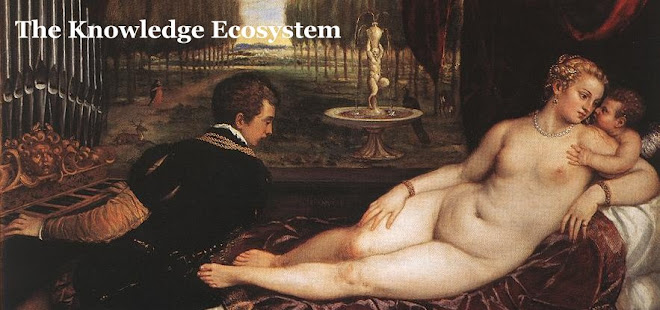
Estraggo da questa succosa intervista a Seth Godin, su FT, in occasione dell'uscita del suo ultimo libro "Meatball Sundae - Is Your Marketing Out of Sync?", alcune ficcanti osservazioni, in tipico stile godiniano (che io adoro!):
[...] So, the opportunity is NOT in creating ways to rationalise using these tools to promote your existing gig. It’s in creating products and services and organisations that people WANT to read about on your blog or hear about via Twitter. [...] It means rethinking what you do, how long you want people to stay, how you lay out the shop... it means not slapping new marketing on top of your existing business, but instead inventing a new kind of business that thrives on the new marketing. [...] My point is that the new marketing doesn’t work so well for meatball products. That I’m in no hurry to visit the website for a furniture store or to stop by the blog of an accountant. Which is fine. Just don’t count on the new marketing to fuel your growth. Don’t count on MySpace leading to huge market share gains for your fuel oil company. [...] So, yes, I do mean, “after advertising.” The idea of advertising was powerful and simple. From 1940 to 1990, the equation was: Whoever spends the most on ads, wins. Simple. It gave us Coke and Pepsi and Ford. Now, that formula clearly doesn’t work. |
In sostanza, dice Seth Godin, il nuovo marketing introduce una nuova opportunita', emergente e probabilmente vincente (ma non per questo immediatamente e totalmente "sostitutiva"). Si tratta di orientare l'azienda al consumatore, e non il consumatore all'azienda. Non di offrire cio' che l'azienda vuole e persuadere il consumatore a domandarlo. Nemmeno di offrire semplicemente cio' che il consumatore domanda. Ma soprattutto di offrire cio' che e' possibile effettivamente proporre al consumatore, considerando quali strumenti di informazione e comunicazione sono oggi a disposizione .
Il maggior controllo da parte del cliente sugli strumenti di informazione e comunicazione impedisce alle aziende di influenzare cosa il cliente desidera e necessita, come spesso e' stato finora: alle aziende (che non hanno gia' costruito un brand forte, unico baluardo rimasto loro per avere ancora il coltello dalla parte del manico) non rimane che orientarsi su cio' che il cliente rivela di desiderare e necessitare quando "conversa" pubblicamente, e prender parte a quella conversazione con argomenti pertinenti. Non pensare di offrire un gustosissimo gelato se parti dal solito polpettone.
Questo ha detto poi a proposito dell' "e-commerce":
[...] Taking it a step further, we see that price isn’t the key factor. Price matters when everything is a commodity, when there’s no difference but the cost. Most of the time, growth happens in industries where price is secondary to experience. So, Starbucks or Apple or some other overhyped brand can thrive because people talk about them, not because they’re cheaper. As a result, the “normal” shops that insist on being in the commodity business are going to get creamed by the supermarche and the big box store and mostly by the internet. If it’s NORMAL, then why on earth should I pay extra in time or money? |
Infine ha puntualizzato anche qualcosa sulla "privacy" :
[...] Privacy is a red herring. What people don’t want is to be surprised. They don’t want information used in a way that they don’t expect. And most of all, they don’t want to give you something and get nothing. |





Nessun commento :
Posta un commento